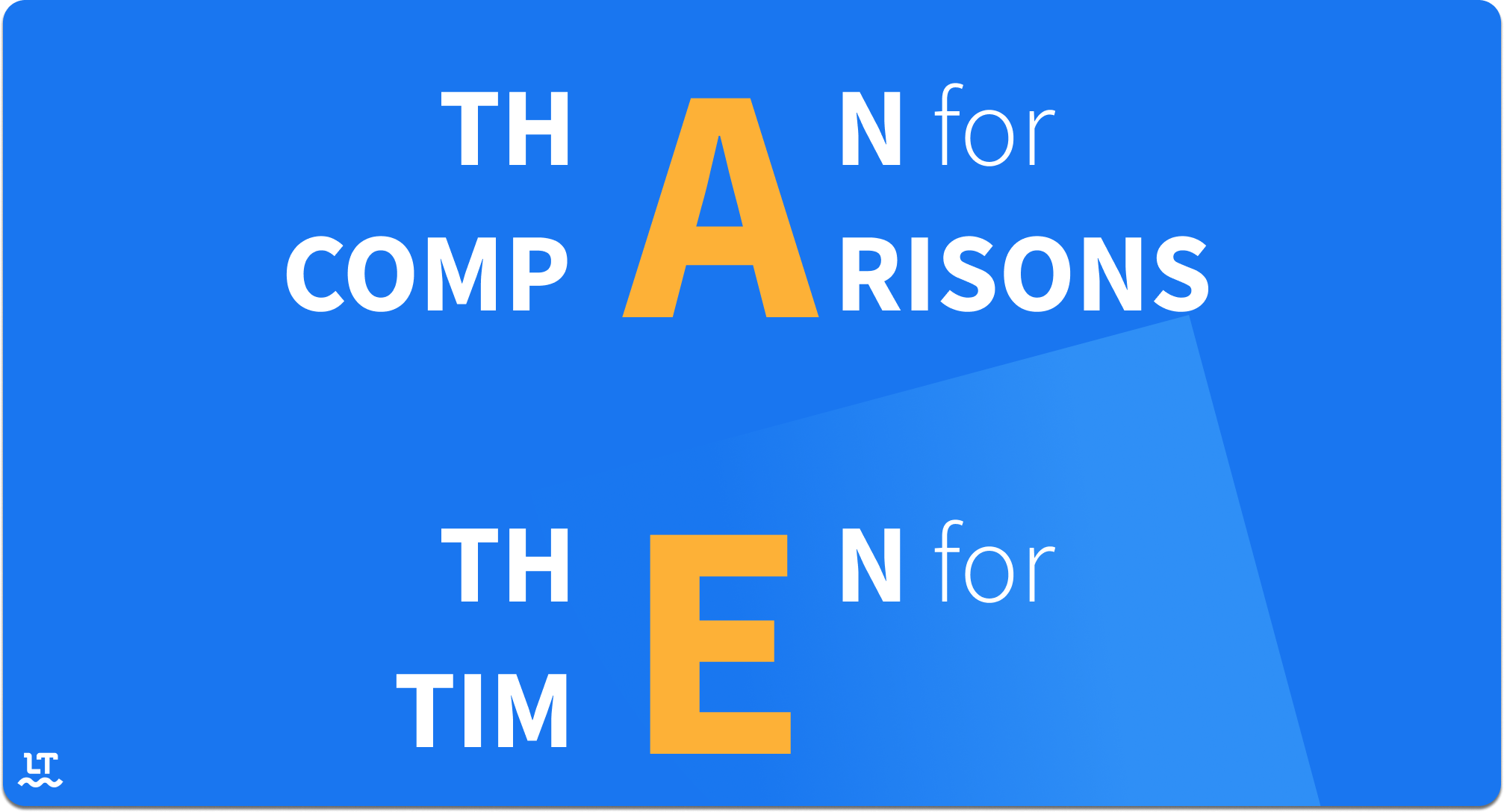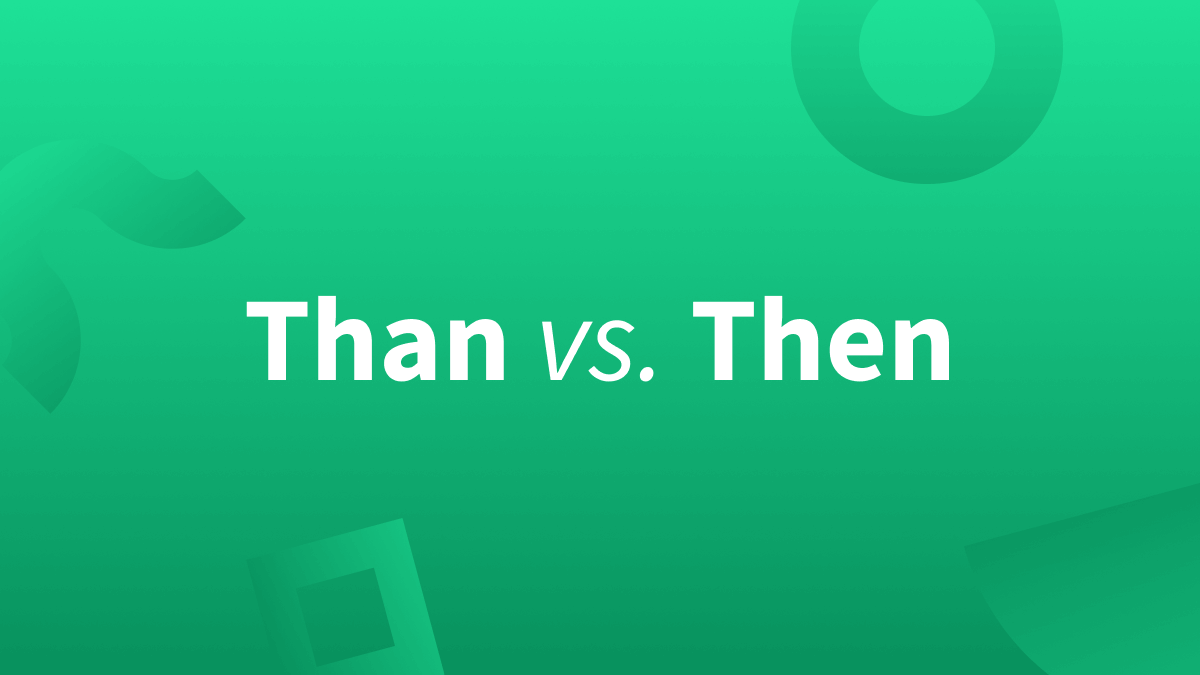- Than can be both a conjunction or preposition used to compare or contrast two or more elements in a sentence.
- Then has several functions and meanings, but it’s most commonly used as an adverb referring to time.
- ○ Jasmine earned the promotion because she is a more productive salesperson than James.
- ○ Usually, we take a poll then decide what movie to watch for our family night.
Is It “Than” or “Then”?
Than and then sound similar, but they actually have different pronunciations, spellings, and meanings. The “a” in than should sound like the “a” in can, and the “e” in then should sound like the “e” in hen. Many people use these words incorrectly because the vowel in than is often not stressed when said aloud, leading to than and then sounding indistinguishable.
If these two words are challenging for you, don’t worry. Read this article, and then you’ll understand when and how to use them correctly.
How To Use “Than”
Than /ðæn/ can function as a conjunction or preposition used to indicate a difference or comparison.
Many people claim that English is more difficult to learn than any other language.
In this sentence, than demonstrates that “English” is being compared to “any other language.”
John would rather visit New Orleans than New York.
Here, than is pointing out that John would rather go to New Orleans.
Here are common phrases that include the word than:
- Rather than…
- Other than…
- Less than…
- Fewer than…
- More than…
How To Use “Then”
Then /ðen/ has multiple functions and definitions.
| Part of Speech | Definition | Example Sentence |
|---|---|---|
| Adverb | 1. “at that time” | 1. I’ll be done cooking in an hour, if you want to come then. |
| 2. “next in order of time” | 2. We’ll shop and then go to the movies. | |
| 3. “as a consequence” | 3. If the electricity goes out, then the house will get hot. | |
| Noun | “that time” | Back then, we had to do chores every day. |
| Adjective | “existing, acting at, or belonging to the time mentioned” | The then principal of the school was loved by all the students. |
You might have noticed that although then has multiple functions, they are all similar because they relate to time.
When to Use “Than” or “Then”
Remember this: Than is used for comparisons (they both have an “a”), whereas then is used when referencing time (both have an “e”). Also keep in mind that it’s much harder to substitute than in a sentence, while then can often be substituted with at that time, subsequently, or as a consequence of.
If you’re still unsure, then you can always use LanguageTool as your writing assistant. This multilingual text editor will correct spelling and grammar mistakes to ensure your writing is more flawless than ever before.


